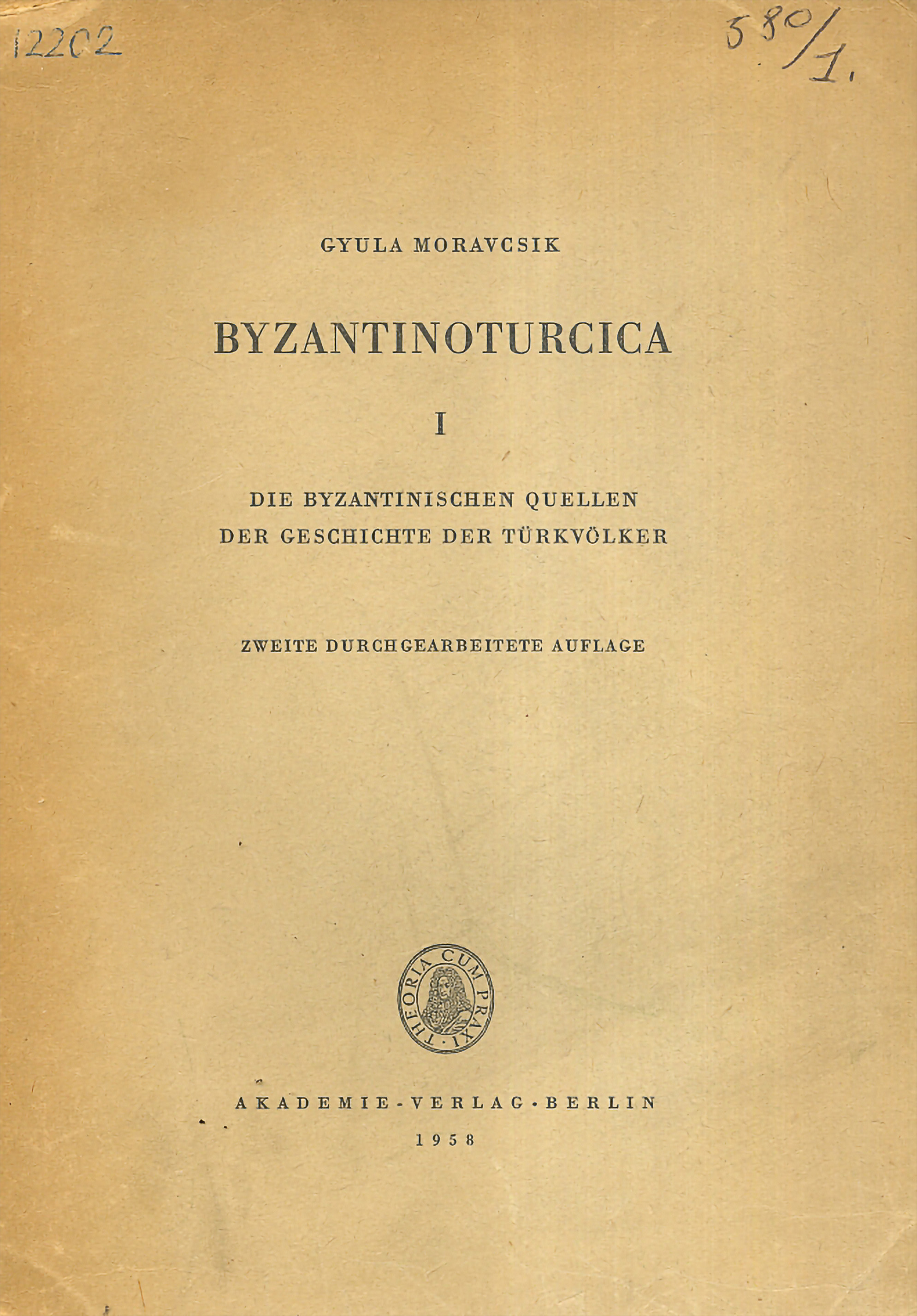Gyula Moravcsik on:
[Wikipedia]
[Google]
[Amazon]
 Gyula (Julius) Moravcsik (Budapest, 29 January 1892 – Budapest, 10 December 1972), who usually wrote just as Gy. Moravcsik, was a Hungarian professor of Greek
Gyula (Julius) Moravcsik (Budapest, 29 January 1892 – Budapest, 10 December 1972), who usually wrote just as Gy. Moravcsik, was a Hungarian professor of Greek
"The contribution of Hungary to international classical scholarship"
'' Hungarian Studies'', 12
Archived here.
/ref> With R.J.H. Jenkins, he produced the critical and translated edition of Constantine VII Porphyrogenitus' '' De Administrando Imperio''. That work was first published in Budapest, 1949, and later at Dumbarton Oaks. Moravcsik also contributed to the later ''Commentary'', also in the Dumbarton Oaks series.
Memorial service on Oct. 7 for 'pragmatic Platonist' Julius Moravcsik
''Stanford News Service'', Stanford University, 1 October 2009. Retrieved 5 March 2014
/ref> His daughter, Edith A. Moravcsik, became a professor of linguistics at the University of Wisconsin-Milwaukee. His grandson, Andrew Moravcsik, became Professor of Politics and International Affairs at
 Gyula (Julius) Moravcsik (Budapest, 29 January 1892 – Budapest, 10 December 1972), who usually wrote just as Gy. Moravcsik, was a Hungarian professor of Greek
Gyula (Julius) Moravcsik (Budapest, 29 January 1892 – Budapest, 10 December 1972), who usually wrote just as Gy. Moravcsik, was a Hungarian professor of Greek philology
Philology () is the study of language in Oral tradition, oral and writing, written historical sources. It is the intersection of textual criticism, literary criticism, history, and linguistics with strong ties to etymology. Philology is also de ...
and Byzantine
The Byzantine Empire, also known as the Eastern Roman Empire, was the continuation of the Roman Empire centred on Constantinople during late antiquity and the Middle Ages. Having survived the events that caused the fall of the Western Roman E ...
history who in 1967 was awarded the Pour le Mérite for Sciences and Arts.
Scholarship
Moravcsik explored in depth the relationship between Byzantium and theTurkic people
Turkic peoples are a collection of diverse ethnic groups of West Asia, West, Central Asia, Central, East Asia, East, and North Asia as well as parts of Europe, who speak Turkic languages.. "Turkic peoples, any of various peoples whose members ...
s, broadly defined and so including Hungarians, and this was reflected in the two volumes of ''Byzantinoturcica'' and the 1953 ''Bizánc és a Magyarság'' (Byzantium and the Magyars).Ritoók, Zsigmond. (1997"The contribution of Hungary to international classical scholarship"
'' Hungarian Studies'', 12
Archived here.
/ref> With R.J.H. Jenkins, he produced the critical and translated edition of Constantine VII Porphyrogenitus' '' De Administrando Imperio''. That work was first published in Budapest, 1949, and later at Dumbarton Oaks. Moravcsik also contributed to the later ''Commentary'', also in the Dumbarton Oaks series.
Family
His elder son Michael Moravcsik (1928–1989), became professor of physics atUniversity of Oregon
The University of Oregon (UO, U of O or Oregon) is a Public university, public research university in Eugene, Oregon, United States. Founded in 1876, the university is organized into nine colleges and schools and offers 420 undergraduate and gra ...
. His younger son, Julius Moravcsik (1931–2009), became a professor of philosophy at Stanford University
Leland Stanford Junior University, commonly referred to as Stanford University, is a Private university, private research university in Stanford, California, United States. It was founded in 1885 by railroad magnate Leland Stanford (the eighth ...
. ''Stanford News Service'', Stanford University, 1 October 2009. Retrieved 5 March 2014
/ref> His daughter, Edith A. Moravcsik, became a professor of linguistics at the University of Wisconsin-Milwaukee. His grandson, Andrew Moravcsik, became Professor of Politics and International Affairs at
Princeton University
Princeton University is a private university, private Ivy League research university in Princeton, New Jersey, United States. Founded in 1746 in Elizabeth, New Jersey, Elizabeth as the College of New Jersey, Princeton is the List of Colonial ...
.
Selected publications
*''Byzantinoturcica'' I and II, Budapest 1942 & 1943. Second edition, Berlin 1958. *''Bizánc és a Magyarság''. 1953. *''Studia Byzantina''. 1967. * *References
Further reading
*Bibliography of Moravcsik's works by R. Benedicty in ''Acta Antiqua Acad. Sc. Hung.'' 10 (1962): 295–313.External links
* {{DEFAULTSORT:Moravcsik, Gyula 1892 births 1972 deaths Writers from Budapest 20th-century Hungarian historians Recipients of the Pour le Mérite (civil class) Members of the German Academy of Sciences at Berlin Hungarian classical scholars Scholars of Byzantine history